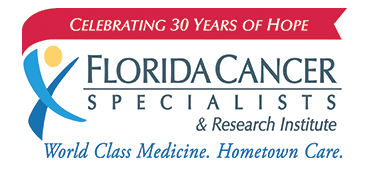Study of Pazopanib and Doxil in Patients With Advanced Relapsed Platinum-Sensitive or Platinum-Resistant Ovarian, Fallopian Tube or Primary Peritoneal Adenocarcinoma
| Status: | Terminated |
|---|---|
| Conditions: | Ovarian Cancer, Cancer, Cancer |
| Therapuetic Areas: | Oncology |
| Healthy: | No |
| Age Range: | 18 - Any |
| Updated: | 4/21/2016 |
| Start Date: | January 2010 |
| End Date: | March 2014 |
A Phase I/II Study of the Combination of Pazopanib and Liposomal Doxorubicin (Doxil) in Patients With Advanced Relapsed Platinum-Sensitive or Platinum-Resistant Ovarian, Fallopian Tube or Primary Peritoneal Adenocarcinoma
In this study, patients with relapsed or refractory ovarian cancer will receive treatment
with pazopanib and liposomal doxorubicin (Doxil) until disease progression or unacceptable
toxicity occurs. The Phase I portion will define the dose limiting toxicity (DLT) of
pazopanib and liposomal doxorubicin when administered in combination. Once the maximum
tolerated dose has been identified in the Phase I portion, the Phase II portion will
evaluate efficacy and safety of this combination in the same patient population.
with pazopanib and liposomal doxorubicin (Doxil) until disease progression or unacceptable
toxicity occurs. The Phase I portion will define the dose limiting toxicity (DLT) of
pazopanib and liposomal doxorubicin when administered in combination. Once the maximum
tolerated dose has been identified in the Phase I portion, the Phase II portion will
evaluate efficacy and safety of this combination in the same patient population.
Inclusion Criteria:
1. Histologically or cytologically confirmed diagnosis of epithelial ovarian carcinoma
(FIGO Stage II to IV), primary peritoneal cancer or fallopian tube.
2. One or 2 previous chemotherapy regimens for advanced ovarian cancer. At least one of
these regimens must have contained a platinum agent.
3. Patients who are platinum-resistant (relapse <6 months after completing a
platinum-containing regimen) or platinum sensitive (relapse ≥ 6 months after
platinum-containing regimen) are eligible.
4. Radiographically documented progression per RECIST criteria (version 1.1) or
progression of CA-125 during or subsequent to the last chemotherapy regimen.
5. Measurable disease (RECIST criteria) or evaluable disease with elevated CA-125 level.
Patients with normal CT scans and elevated CA-125 levels as the only indication of
disease are not eligible. ECOG performance status of 0 or 1.
6. Normal left ventricular ejection fraction (LVEF) according to institutional
standards.
7. Adequate recovery from recent surgery. At least 1 week must have elapsed from the
time of a minor surgery (with the exception of portacath placement); at least 4 weeks
must have elapsed from the time of a major surgery.
8. Laboratory values as follows:
- Absolute neutrophil count (ANC) ≥1500/μL
- Hemoglobin (Hgb) ≥9g/dL. Patients may not have received RBC transfusions within
7 days of screening assessment.
- Platelets ≥100,000/L
- AST or ALT must be <2.5 x ULN (concomitant elevations in bilirubin and AST/ALT
>1.0 x ULN are not permitted).
- Total bilirubin <1.5 x the institutional ULN (if Gilberts syndrome, direct
bilirubin ≤1.5 x ULN)
- International normalized ratio (INR) 1.2 and activated partial thromboplastin
time (aPTT) 1.2 the ULN (except for patients receiving anti-coagulation therapy)
- Cr ≤ 1.5 x ULN. If Cr >1.5 x ULN, then calculated creatinine clearance must be
≥50 mL/min
- Urine protein creatinine (UPC) ratio ≤1.0 at screening OR Urine dipstick for
proteinuria <2+ (patients discovered to have 2+ proteinuria on dipstick
urinalysis at baseline should undergo a 24 hour urine collection and must
demonstrate <1g of protein in 24 hours to be eligible).
9. Patients must be 18 years of age.
10. Life expectancy of ≥12 weeks.
11. Patient must be accessible for treatment and follow-up.
12. Patients must be able to understand the investigational nature of this study and give
written informed consent prior to study entry.
13. Females of non-childbearing potential (i.e., physiologically incapable of becoming
pregnant), include a female who has had: a hysterectomy, a bilateral oophorectomy, a
bilateral tubal ligation, or is post-menopausal. Patients not using hormone
replacement therapy (HRT) must have experienced total cessation of menses for ≥1 year
and be ≥45 years old, or in questionable cases, have a follicle stimulating hormone
(FSH) value >40 mIU/mL and an estradiol value <40pg/mL. Patients using HRT must have
experienced total cessation of menses for ≥1 year and be ≥45 years old, or have had
documented evidence of menopause based on FSH and estradiol prior to the initiation
of HRT.
14. Women of childbearing potential must have a negative serum or urine pregnancy test
performed ≤14 days prior to start of treatment. Women of childbearing potential must
use effective birth control measures during treatment. Acceptable contraceptive
methods include: 1) an intrauterine device with a documented failure rate of ≤1% per
year, 2) a vasectomized partner who is sterile prior to the patient‟s entry and is
the sole sexual partner for that female, 3) abstinence 14 days prior to study entry,
throughout the dosing period, and for at least 21 days after the last dose of
protocol therapy, 4) double-barrier contraception, or 5) oral contraception. If a
woman becomes pregnant or suspects she is pregnant while participating in this study,
she must agree to inform her treating physician immediately.
Exclusion Criteria:
1. Patients may not have received either investigational or marketed agents, which act
by primary anti-angiogenic mechanisms (i.e. bevacizumab).
2. Prior treatment with liposomal doxorubicin.
3. Patients with brain metastases. (Baseline imaging required only if clinically
indicated).
4. Patients with known endobronchial lesions and/or lesions infiltrating major pulmonary
vessels.
5. Patients with hemoptysis within 6 weeks of first dose of study drug.
6. Patients who are pregnant or breast feeding.
7. Impaired cardiac function including any of the following conditions within the past 6
months:
- NYHA Class II, III or IV heart failure.
- QTc prolongation or other significant ECG abnormalities.
- Myocardial infarction or unstable angina
- Coronary artery bypass graft surgery
- Symptomatic peripheral vascular disease
- History of sustained ventricular tachycardia.
8. Patients must not have taken any potent CYP3A4 inhibitors <= 14 days prior to
enrollment including but not limited to:
• ketoconazole, itraconazole, troleandomycin, clarithromycin, erythromycin,
ritonavir, indinavir, nelfinavir, saquinavir, amprenavir, nefazodone, fluvoxamine,
diltiazem, verapamil, mibefradil, cimetidine, cyclosporine, and grapefruit juice.
9. Uncontrolled hypertension (systolic blood pressure [BP] >180 or diastolic BP >100mm
Hg) or uncontrolled cardiac arrhythmias (Patients with hypertension controlled by
antihypertensive therapies are eligible.)
10. History of cerebrovascular accident (CVA), MI within 12 months or venous thrombosis
within 12 weeks. (Patients with previous history of venous thrombosis on a stable
dose of anticoagulation are allowed.)
11. Concurrent severe, intercurrent illness including, but not limited to, ongoing or
active infection, or psychiatric illness/social situations that would limit safety
and compliance with study requirements.
12. Inability to swallow whole tablets.
13. Impairment of gastrointestinal function or gastrointestinal disease that may
significantly alter drug absorption (e.g., active inflammatory bowel disease,
uncontrolled nausea, vomiting, diarrhea, malabsorption syndrome or significant small
bowel resection).
14. Mental condition that would prevent patient comprehension of the nature of, and risk
associated with, the study.
15. Use of any non-approved or investigational agent <= 30 days prior to administration
of the first dose of study drug. Patients may not receive any other investigational
or anti-cancer treatments while participating in this study.
16. Past or current history of neoplasm other than the entry diagnosis with the exception
of treated non-melanoma skin cancer or carcinoma in situ of the cervix, or other
cancers cured by local therapy alone and a DFS >= 5 years.
We found this trial at
4
sites
Click here to add this to my saved trials
Oncology Hematology Care Our more than 60 physicians and advanced practice providers throughout neighborhood offices...
Click here to add this to my saved trials
Tennessee Oncology, PLLC Since 1976 Tennessee Oncology has been providing quality cancer care. In 2013,...
Click here to add this to my saved trials
Click here to add this to my saved trials


